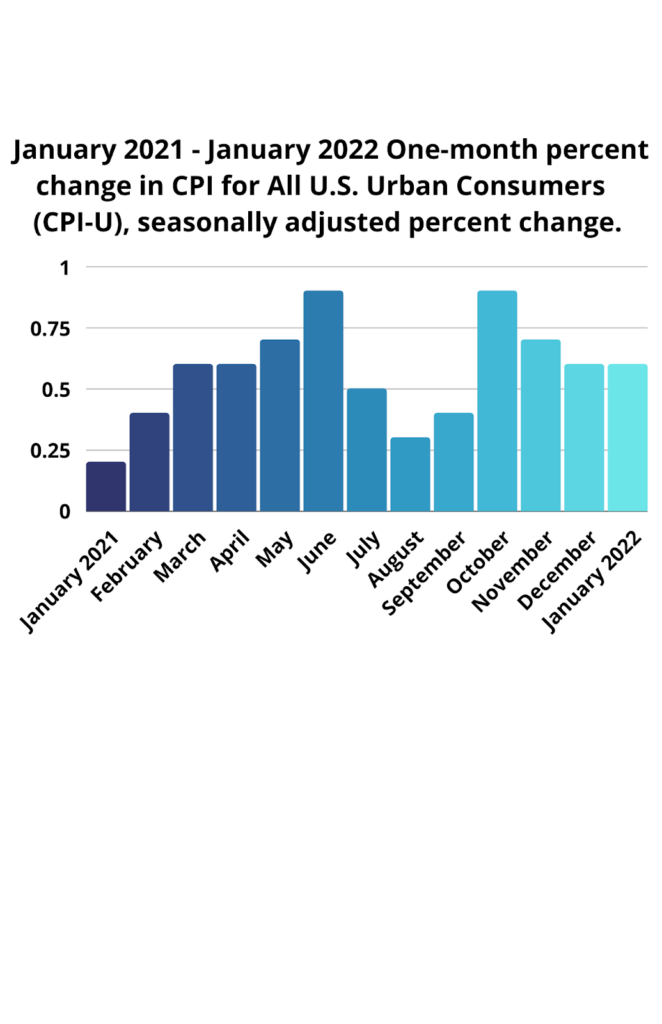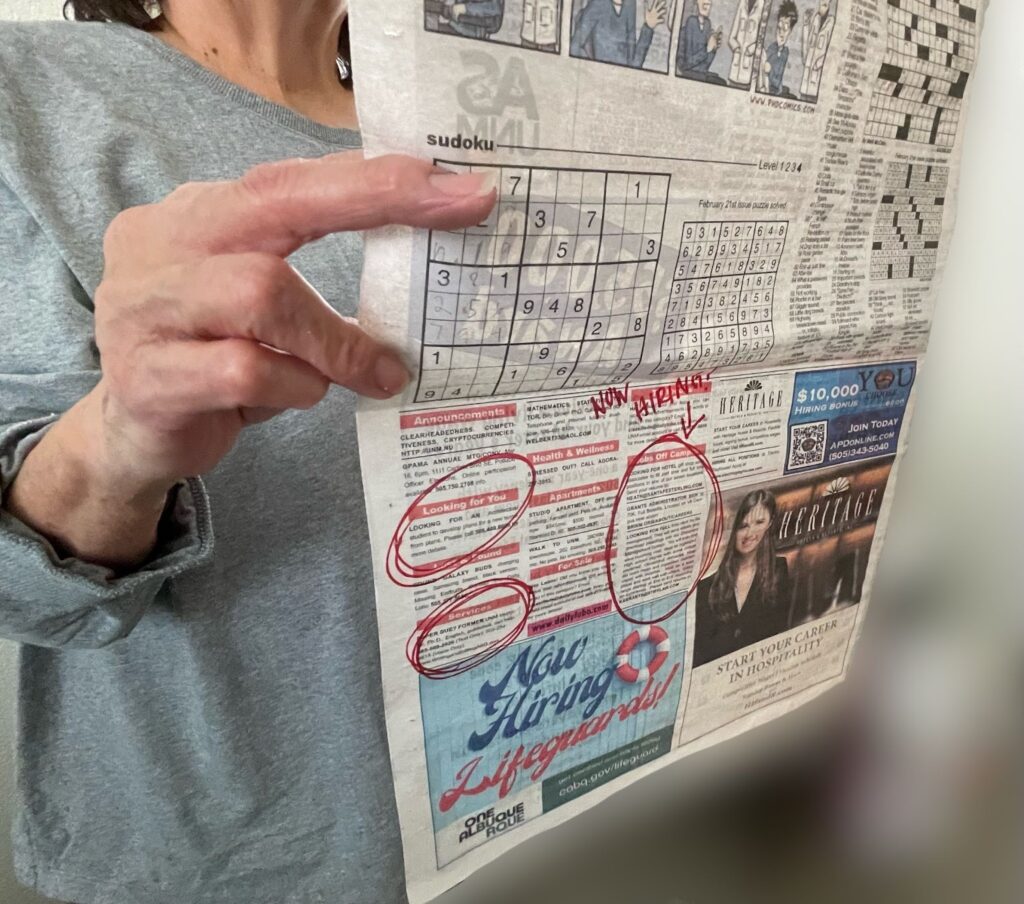By Taylor Gibson & Hope Munoz / New Mexico News Port
Doj Pimentel is a 21-year-old nursing major at the University of New Mexico who also works as a Door Dash driver—but the increased cost of gas and food means he now depends on programs such as Lobo Food Pantry to make ends meet.
Originally from Cebu, Philippines, Pimentel began DoorDash driving in January 2020. After the pandemic started, he noticed the price of gas going up.
Pimentel said he now spends about $30 a day on gas, “which kind of defeats the purpose,” he said, “because I make about $15 an hour with DoorDash and if I’m spending more than I can make, it’s basically not a good job for me anymore.”
Pimental isn’t the only one. Many New Mexicans are struggling to make ends meet as prices rise for basic necessities. Low-income individuals are being hit harder by inflation than anyone else.
When prices go up, many households can cut back on unnecessary spending, while low income households may not have anything left to cut back on. Inflation inequality means that people who make less money get squeezed harder by inflation.
Over the last year, Americans have seen inflation rates on the rise. The consumer price index (CPI) is a measure of the average change in prices urban consumers pay for goods such as fuel and gas.

The CPI (for January 2022) from the U.S. Bureau of Labor Statistics shows major price increases in the last year. The most recent increases were the largest 12 month increases since the period ending in February 1982.
Typically as wages rise, prices go up, but when prices go up wages don’t necessarily follow. Many New Mexico college students are on fixed incomes that include scholarships or loans and work minimum wage jobs in food service or retail. Now some students, especially commuters and delivery drivers, are having trouble paying for rising gas prices.
“Although wages have come up, they aren’t coming up as fast as inflation,” said Riley White, an associate professor of finance at UNM’s Anderson School of Management.
“People in New Mexico are really feeling that difference in their pocketbooks.” One factor impacting New Mexicans more is the fact that they drive about 50% more miles than the average American, White said.
Many students commute across the state to school and the rising cost of gas can cut into their budget for food and housing.
As a senior in mechanical engineering, David Martinez’s main priority is finding a job. He had started an internship fall of 2019, but when the pandemic began and classes went online, he was forced to move back to his hometown outside of Houston.
“My mom sends me money to pay for rent and gas, while I focus on my job search,” Martinez said. He wants a job that will look good on his resume and pay well but he hasn’t found anything yet.
Martinez has been stressed, he said and sees only two options. Either he moves back to Baytown or stays in Albuquerque and works retail while continuing to hunt for a better gig.

Martinez is fortunate to have financial support from his family but many UNM students don’t.
UNM’s Student Support Services Program Director Dawn Blue Sky-Hill said she has seen an increase in students transferring and dropping out of college because they had too many responsibilities at home or had to prioritize work because they are the sole income providers of their households.
Student Support Services helps first-generation, low-income and students with documented disabilities.
They also offer trusted programs that began in the 80s for upcoming middle and high school students to get exposed to college in hopes that they enroll. After graduating from those programs, SSS-Trio helps college students survive a bigger population.
The grant-funded program manages 125 enrolled students. Pre-covid they had a waitlist of students waiting for enrollment, but now Sky-Hill is constantly recruiting students to join SSS-Trio and get the help they may not know they needed.
“To prevent our students from transferring, or dropping out, we acknowledge that their home lives may need more advising and resources to ensure their academic lives can continue,” Sky-Hill said.
One of SSS-Trio’s tools is communication, peer coaches report anything concerning and try to mediate between students and families. “Especially in first-generation and low-income students, they need to tell their families that they may have a class schedule like high school but now in college for every class, you need 3-4 hours of studying!” Sky-Hil said. She advises students to gently but firmly tell family members they can’t take on more responsibilities at home.
SSS-Trio has applications open year-round located on their website. The campus’ Lobo Food Pantry is open Monday, Wednesday and Friday from 11:30 a.m. to 1:30 p.m., and Tuesday and Thursday from 3-5 p.m., in SUB Room 1093.
Taylor Gibson and Hope Munoz are reporters for New Mexico News Port and can be reached at nmnewsport@gmail.com.